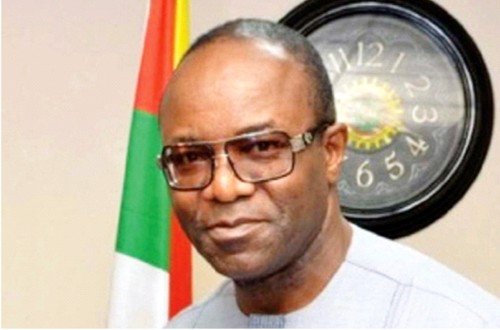The four refineries belonging to the Federal Government may end up as scrap once the Dangote Group begins processing crude oil at its refinery in Lagos by 2019, the Minister of State for Petroleum Resources, Dr. Ibe Kachikwu, has warned.
According to the minister, if the country fails to take urgent steps to revamp the refineries in Port Harcourt, Warri and Kaduna, the facilities may be worthless in three years’ time after the Dangote refinery must have come on stream.
Kachikwu, while speaking at a stakeholders’ consultative forum on the draft National Gas Policy and National Oil Policy in Abuja on Thursday, stressed that Nigeria had no other option than to ensure that its refineries work in the shortest possible time.
“Refineries will have to work. It is really not an option anymore. And not only should they work, they have to work very quickly. The reality is that if we do not privatise and we do not concede them, which is not what we are doing now, then we have a responsibility to find private capital to get them to where they should be.
“This is because if we do not get them to work, in 2019, I can assure you that if the Dangote system works well, we will have scrap, we won’t have refineries, because by then it will be too late to do anything,” he said.
Kachikwu urged stakeholders to work together in bringing down the cost of production in the industry to a reasonable and manageable level, noting that crude oil was still being produced at $27 per barrel in Nigeria.
This production cost, according to him, is high as no decent country will produce at that amount at a period when the oil price is unpredictable.
“We are going to try to get those figures below $18 per barrel,” he said.
On the total deregulation of the downstream oil sector, Kachikwu said, “At every given time in the history of every country, you will always have partial deregulation. The reason being that you have to catch up each time and make an amendment, and even if it is just one day, you may have some level of subsidy for that one or two days before it is removed.
“What is important is the goal post, where are we headed? Where we are headed is to try and free the industry so that it can do its own rules and set its own prices. There are few mechanics that we still need to get in place properly. We can’t forget the fact that we still have foreign exchange challenges and that income to the government is still very tight.
“You still have to find a way to balance that. But what is important is what the objective is. And the objective is still to fully deregulate.”
The minister stated that more policies and activities had to be fine-tuned in the petroleum industry to make it run smoothly like in other countries where the sector was being successfully run, adding that Nigeria would exit Joint Venture cash calls before December this year.
He said, “We have dealt with subsidy removal. We began the process of exiting Joint Venture Cash Call. Hopefully, before December, we will get to a point where Joint Venture cash call would be a thing of the past.”

